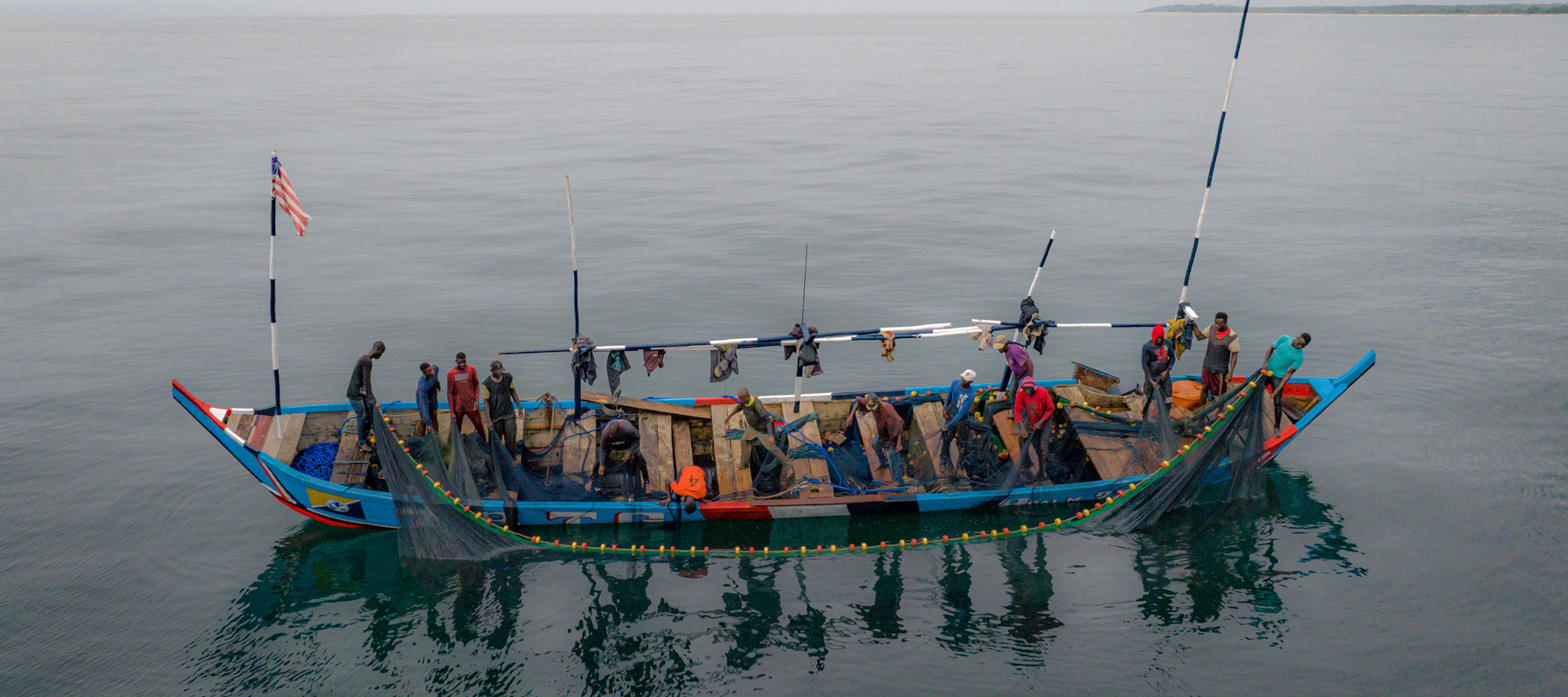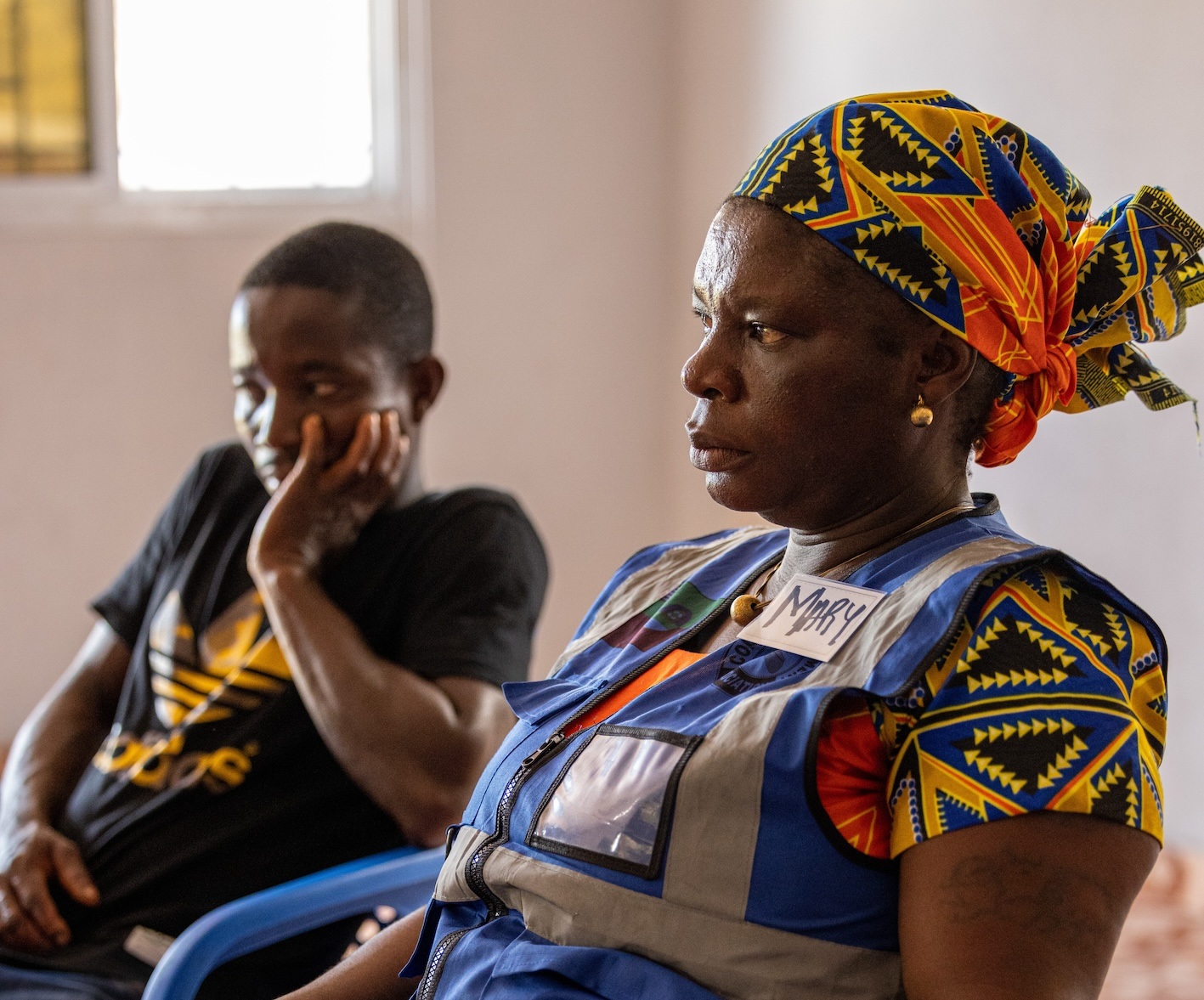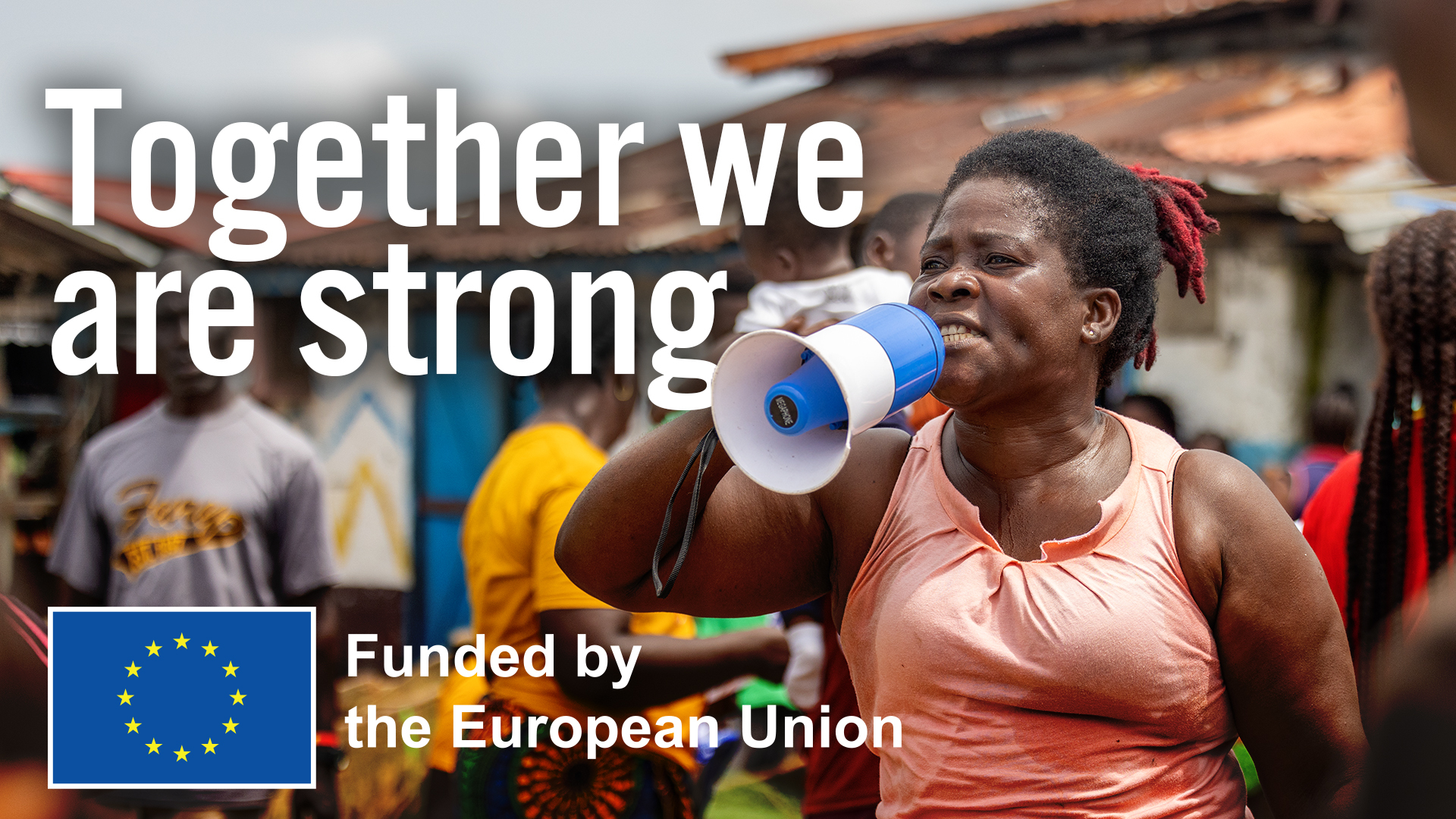
The European Union has been a leader in the fight against illegal fishing for over a decade. Now, this leadership continues through the Global Toolkit for Participatory Fisheries Governance, a project funded and driven by the EU and implemented by EJF, which works to give coastal communities around the world the tools they need to monitor and manage their fisheries.
Global fisheries are in crisis. According to the UN Food and Agriculture Organization, 35% of fisheries are overexploited, while marine habitats that support thriving fish populations are being wiped out. While these trends ultimately affect us all, it is coastal, small-scale fishing communities that suffer first and worst.
Small-scale fisheries are responsible for 40% of global fish catch – 492 million people are at least partially dependent on these fisheries for their income, and they also provide sustenance to around one billion people, largely from the Global South. Illegal, unreported and unregulated (IUU) fishing, which has had a major driving role in the global decline of fish populations, directly undercuts the most basic human rights of coastal fishing communities.
To protect and restore healthy fisheries for the benefit of people and our shared planet, these communities must be involved in the management and regulation of their fisheries at both the local and national levels.
Our work over the past decades to support fishing communities has now expanded to a toolkit for participatory fisheries governance, thanks to the European Union. This toolkit takes tried and tested approaches to effective and equitable fisheries management and expands them across the Global South.
The EU is enhancing community surveillance, giving people the tools they need to report suspected illegal fishing in their waters. DASE means ‘evidence’ in the Fante dialect of Ghana, and enables fishers to easily collect just that. Fishers take a photo of a vessel while it is fishing, and the app records its identification number or name and geotags the location.
The app uploads this to a central database, which can be accessed and used by authorities to identify and sanction perpetrators if the vessel has broken any fisheries laws. Over 700 reports have already been made to DASE in Senegal alone.
The DASE app is cheap, readily available, and practical, enabling fishers to be proactive in managing their resources and protecting their environment. “This app means canoe fishers no longer have to stand by while industrial vessels fish illegally in their fishing grounds,” says Nana Jojo Solomon, executive member of the Ghana National Canoe Fishermen Council.
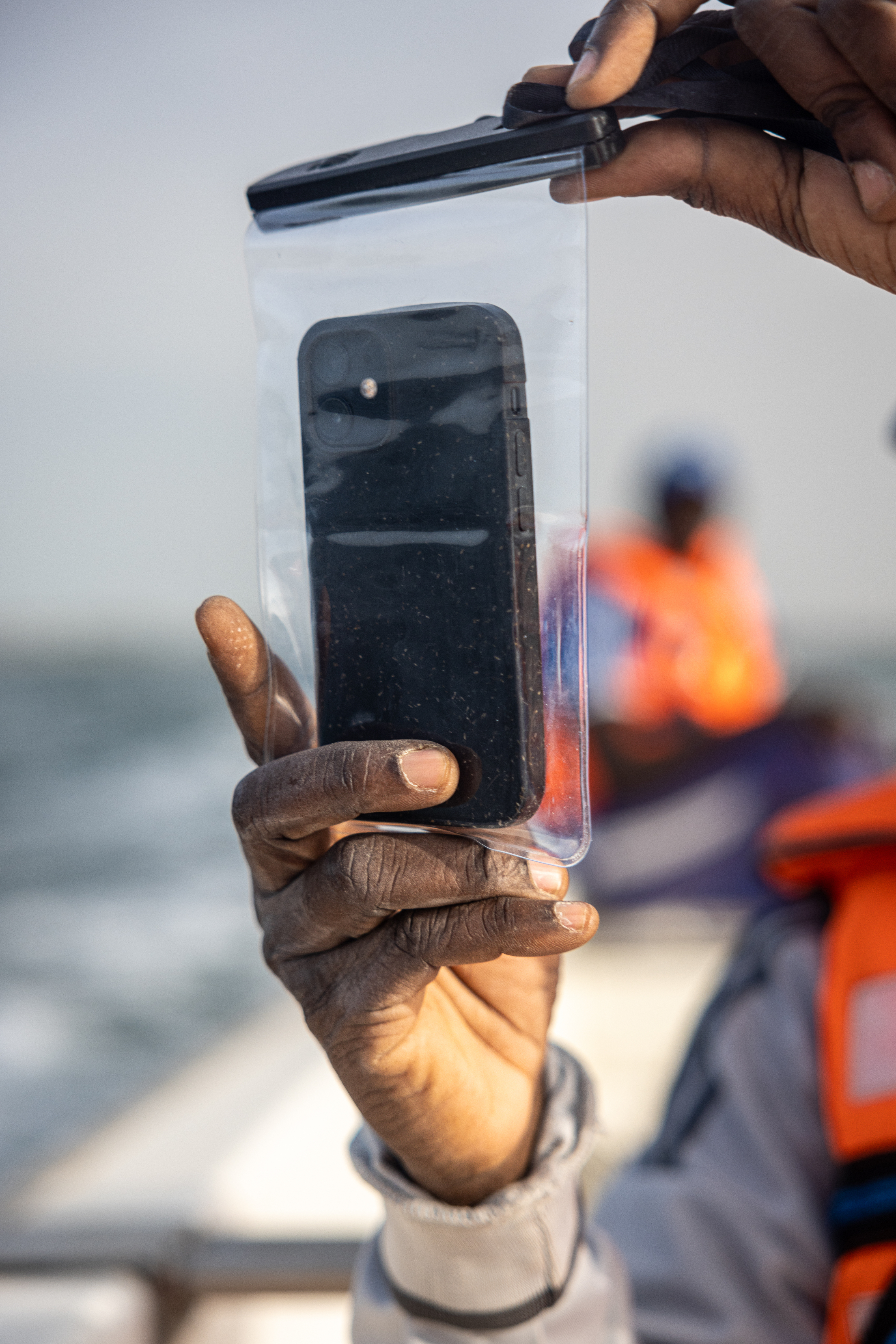
This app means canoe fishers no longer have to stand by while industrial vessels fish illegally in their fishing grounds.
Nana Jojo Solomon, executive member of the Ghana National Canoe Fishermen Council
The EU is promoting community governance of fisheries, giving people a voice in managing the resources they rely on. As part of the toolkit project, we are rolling out co-management associations (CMAs), which are community groups that manage fisheries in partnership with national governments.
So far, CMAs set up in Liberia have been able to reconcile conflicts between different communities fishing in similar areas – in one case, members have now committed to work together to manage their shared fishing grounds. John Adam, secretary of the Robertsport CMA, said, “My greatest achievement has been uniting communities that were in conflict for a long period of time. With the help of the CMA, we now have these two communities working as a single unit.”
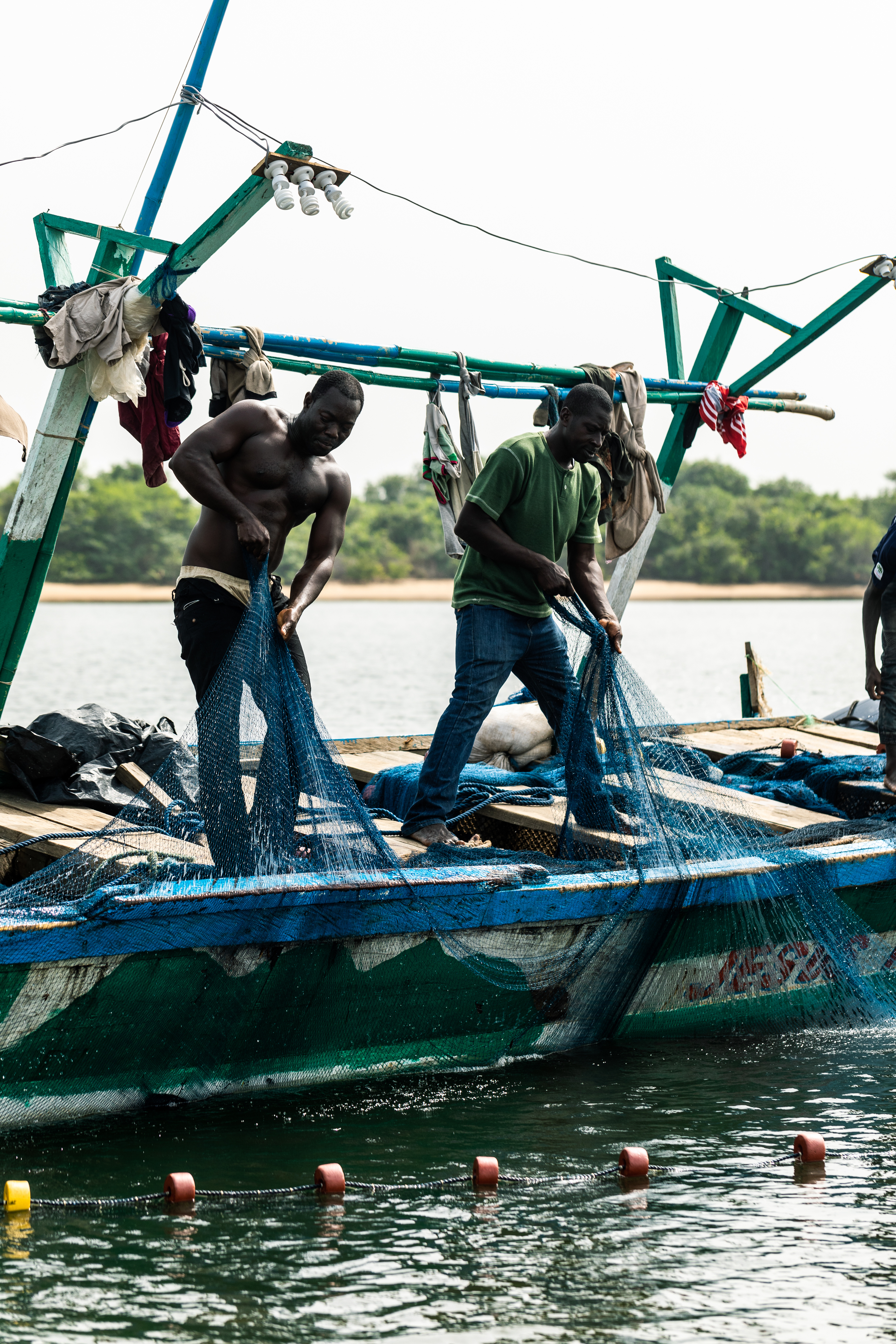
My greatest achievement has been uniting communities that were in conflict for a long period of time. With the help of the CMA, we now have these two communities working as a single unit.
John Adam, secretary of the Robertsport CMA
With the support of the EU, we are also boosting womens’ participation in the CMAs, bringing their much-needed voices to fisheries decision-making for the first time. Our Village Savings and Loans Associations (VSLAs) project brings Liberian women together to pool together their savings, giving them access to finance when they need it for everything from purchasing canoes for their fishing businesses to paying for education for their children.
US$305,599.19 was saved across the VSLAs between 2021 and 2023. This project gives women the financial security they need to run for office in the CMAs, and there has been a 50% increase in womens’ participation in them since the VSLA project began.
Mary Browne, a VSLA member, told us, “My business has improved. I am planning to start taking fish to other counties again to start selling. This fish is what we depend on to live so we’ve got to protect it and our environment.”

My business has improved. I am planning to start taking fish to other counties again to start selling. This fish is what we depend on to live so we’ve got to protect it and our environment.
Mary Browne, VSLA member
Lastly, the EU strengthens national fishing associations that work to represent the artisanal fishing sector, including the Liberia Artisanal Fishermen Association and the Ghana National Canoe Fishermen Council. These groups are advised how to engage with national authorities and are given training on management processes, gender equality, sustainable income streams, and democratic governance under the toolkit project.
Similarly to the CMAs, these associations ensure local issues are recognised in policymaking. They aim to give coastal communities more of a say in how fisheries are governed at a national level, and hopefully facilitate long-term sustainability from the bottom up.
Truly sustainable fisheries management can only be unlocked through community participation. When local people have the right training, tools, and access to meaningful decision-making power, they can effectively manage their fish populations and secure their livelihoods.
This work is made possible through the efforts of the communities involved and the central role of EU leadership. The crisis in many fisheries is a global problem, but one with local and national solutions. The EU is showing the way to a healthy future for the global ocean, fisheries, and food security for future generations.
SIGN UP FOR OUR EMAILS AND STAY UP TO DATE WITH EJF
